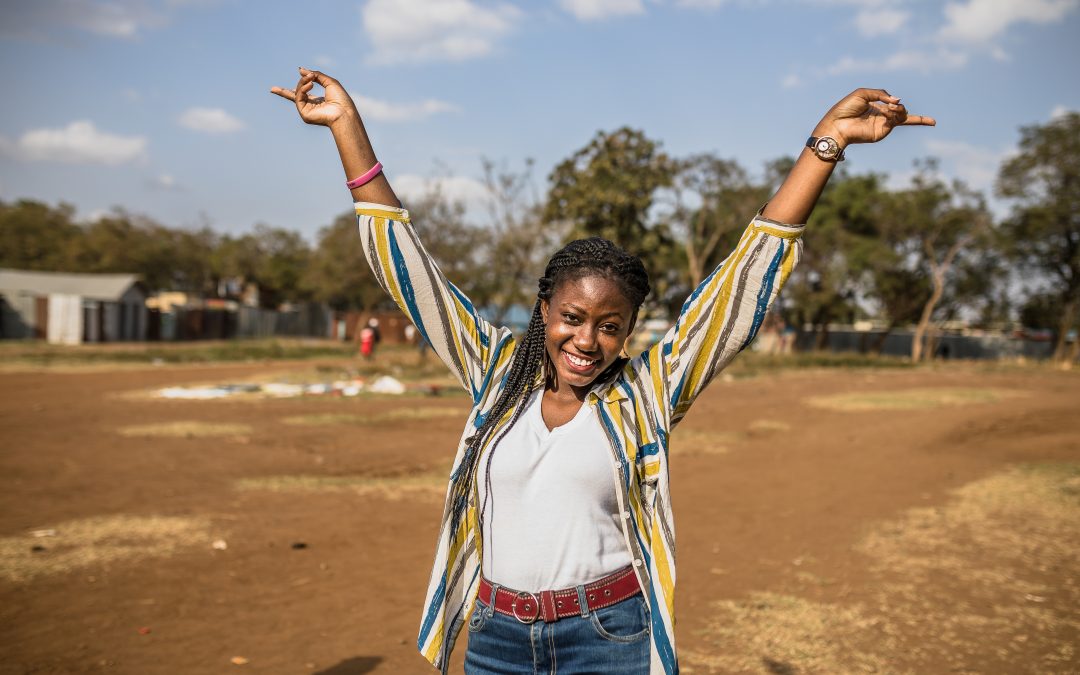The year 2020 is a crucial time to shape future relations between the EU and the African continent. The European Commission together with the European External Action Service (EEAS) will present a joint communication on a new comprehensive EU-Africa strategy ahead of the AU-EU Summit set to take place in October in Brussels.
We see 2020 as a year to accelerate the unleashing of Africa’s potential. With the correct tools and support, the largest youth generation in history have the power to write their futures. A passionate generation of innovators and advocates. The EU-Africa strategy could be a catalyst in unlocking youth power, but to succeed, the EU and Africa must allow young people to engage and participate in matters that will shape their futures.
We at DSW believe that the EU-Africa strategy should build an equal partnership that will allow young people to thrive. For this reason, empowering young people should be a cross-cutting theme in the strategy. For this to happen, the below key issues must be essential elements of the strategy.
Read here what some of our youth champions have to say on these issues.
Youth voices must be heard.
The number of young people living on the African continent is on the rise. Youth can be powerful actors of positive change for their societies and communities. Young people must be meaningfully involved in the shaping and implementation of policies that affect their future. Building inclusive societies and protecting civil society space for improved democratic governance and civic participation supports youth to contribute to sustainable development.
Youth rights must be respected and promoted.
A future strategy must be firmly grounded in the respect and promotion of human rights and fundamental freedoms, addressing all forms of discrimination. The promotion and protection of young people’s human rights must be included in the strategy, including their sexual and reproductive health and rights (SRHR). This is essential in leaving no one behind and ensuring everyone has the right to decide whether, when and by what means to have a child or children and to make decisions governing their bodies. Young people must be empowered to lead healthy and self-determined lives
Youth must be equal.
The protection and promotion of women’s and girls’ rights and gender equality must be mainstreamed throughout the strategy. The strategy should also include targeted actions in favour of gender equality, including a call to ratify and implement the Convention on the Elimination of all Forms of Discrimination Against Women (CEDAW) and implement women’s rights frameworks at African level (i.e. the Maputo Protocol on the Rights of Women).
Youth must be economically empowered.
Africa is home to the largest youth generation in history. This presents an opportunity to contribute to sustainable economic development – but reaping the benefits of the demographic dividend and ensuring young people can access decent jobs cannot happen without strong investments in young people’s skills, access to technology, education, and health, including sexual and reproductive health.
Youth must be healthy.
Poverty-related and neglected diseases (PRNDs) such as HIV & AIDS, tuberculosis, malaria, and neglected tropical diseases still have a devastating impact on people’s lives, particularly on youth and women. Investing in the health of adolescents and youth is key to enhancing the quality of life of future generations. To ensure a resilient health system that can take on the challenges of the 21st century and contribute to sustainable development, the EU-Africa partnership must boost research and innovation to detect, prevent and respond to disease outbreaks and other threats such as anti-microbial resistance and tackle the burden of diseases such as Dengue and Chagas disease.
Youth must have access to education.
The EU and Africa should acknowledge the importance of ensuring universal access to quality education at all levels, including comprehensive sexuality education. To this day, in too many countries around the world, social norms prevent girls from attending school. The EU-Africa partnership should address these challenges, ensuring all girls have access to education. Youth should be provided with life-skills to allow them to reach their full potential and bring a positive contribution to their communities and society.
Youth potential must be unleashed!
This could be the year Europe and Africa deliver on their promises and build sustainable societies where youth can thrive and be positive agents of change. Let us not miss this opportunity, because #YouthCan.

